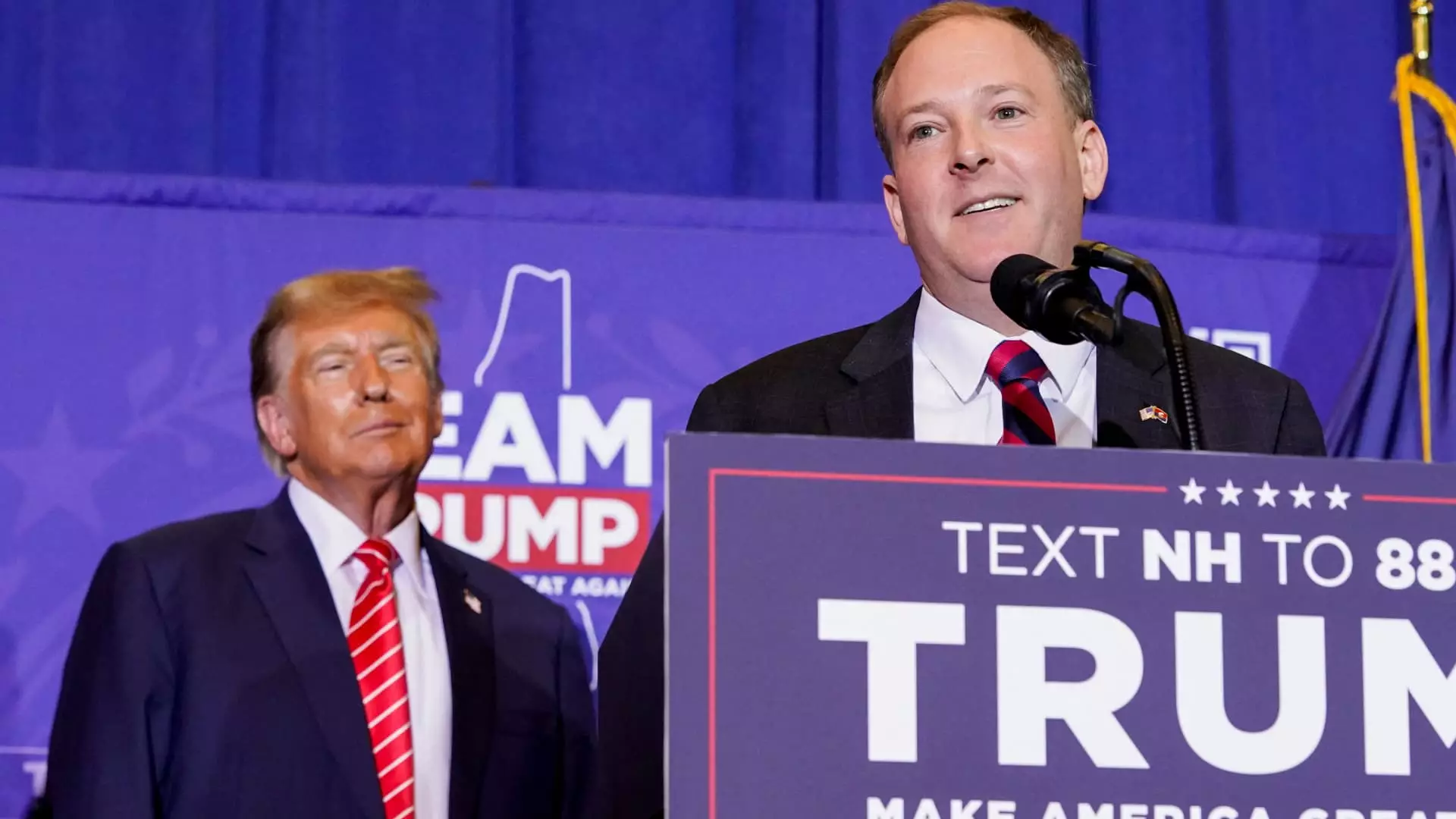Donald Trump’s latest cabinet appointments have sparked a fervent debate in both political and environmental circles. The decision to choose former Rep. Lee Zeldin as the head of the Environmental Protection Agency (EPA) and current Rep. Elise Stefanik as the U.S. ambassador to the United Nations signals a return to the America First ideology that characterized Trump’s previous administration. Unlike conventional appointees often anticipated for these vital roles, Zeldin and Stefanik present a mix of loyalty and political prioritization that raises fundamental questions about the future of U.S. environmental policy and diplomatic relations.
Lee Zeldin, an attorney and four-term congressman from Long Island, New York, is set to lead the EPA amid concerns over his environmental record. With a lifetime score of merely 14% from the League of Conservation Voters, Zeldin’s tenure in Congress has been marked by votes deemed contrary to environmental stewardship. Trump’s statement praised Zeldin as a “true fighter for America First policies,” suggesting that his primary focus will be fostering a business-friendly environment, even at the potential expense of stringent environmental protections.
Zeldin expressed his intentions through social media, promising to revitalize the U.S. energy sector and auto industry while maintaining the highest standards for clean air and water. However, skepticism looms large, particularly from environmental advocates. His previous remarks indicate a determination to roll back regulations that are perceived as heavy burdens on businesses, raising the alarm among those who believe that such deregulation could lead to more pollution and degradation of natural resources.
The backlash against Zeldin’s nomination was immediate and vehement, with environmental groups like the Sierra Club denouncing the appointment as a blatant concession to corporate interests. Executive Director Ben Jealous voiced concerns that this choice underscores a greater agenda of undermining the EPA’s foundational mission to protect public health and the environment. Critics argue that appointing someone with such a low environmental integrity score invites a future marred by neglect of clean air and water standards, impacting the health and safety of communities across the nation.
The implications of Zeldin’s selection cut deeper than mere policies; they hint at a broader strategy to reshape the very fabric of environmental governance in the United States. His past declarations provide a chilling forecast for the direction of regulatory frameworks that protect the Earth, which may soon see significant alterations.
On the diplomatic front, the appointment of Elise Stefanik as ambassador to the United Nations raises its own set of issues. As the chair of the House Republican Conference and a vocal supporter of Trump, Stefanik’s nomination reinforces the notion of a loyalty-based cabinet rather than a merit-based one. Trump has positioned her as a pioneer, noting she was the first member of Congress to endorse him, but this relationship raises the question of whether her diplomatic skills will be enough in the multifaceted arena of international relations.
Stefanik’s experience as a senior member of the House Armed Services Committee and the Intelligence Committee suggests a focus on national security rather than complex global diplomacy, which could leave her unprepared to navigate the intricate landscape of international politics, where nuance and negotiation are paramount. While she certainly has credentials, her efficacy will likely be scrutinized closely, especially given the polarized climate in which today’s U.N. officials must operate.
As these appointments unfold, the potential ripple effects could alter the Republican Party’s landscape. Stefanik’s transition to the U.N. may weaken the GOP’s hold in the House of Representatives, leading to complications in maintaining their slim majority. Additionally, with other controversial appointments, such as Tom Homan as the “border czar,” the Trump administration appears poised for a renewed battle against immigration challenges while simultaneously grappling with domestic climate responsibilities.
The appointments of Zeldin and Stefanik signal a return to a combative and transactional style of governance that prioritizes corporate interests and party loyalty over environmental integrity and diplomatic nuance. With deep divisions evident across the political spectrum, these selections will inevitably provoke ongoing debates about the direction of U.S. policies both domestically and internationally. Observers and stakeholders alike will need to remain vigilant as these developments unfold, especially given the substantial implications for the health of the planet and the role of the U.S. on the global stage.


Leave a Reply